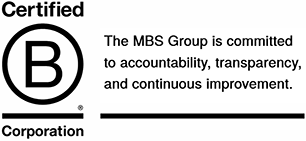Nearly fifteen years after he sold the company, Mohamed Al Fayed’s period of controversial ownership of Harrods has come back into the spotlight – this time focusing on allegations of rape and sexual harassment.
Fortunately, whilst allegations of rape are rare in retail, sadly, at least historically, cultures which permit sexual harassment to thrive in retail, are perhaps not. Going back not many decades, fuelled by arcane leadership styles, domineering owners, buying trips to Asia – and a “work hard, play hard” culture, some retail businesses possibly enabled, and even promoted, toxic environments for women.
At the end of this month, the Worker Protection Act 2023 comes into effect in Great Britain. An amendment of the Equality Act 2010, this new law will bring in extra powers for tribunals to substantially increase compensation awarded against employers if an employee is sexually harassed. The new law requires employers to take ‘reasonable steps’ to prevent employees from being sexually harassed (both in the workplace and potentially also outside it within business premises (shops, restaurants etc) or work-related events). Importantly, this includes internally and from third parties, such as customers. For example, if someone who works in a shop or pub is sexually harassed by a customer, the employer would need to have taken “reasonable steps” to prevent this from happening.
“The new law requires employers to take positive steps to stop harassment occurring at work.”
To learn more about this new amendment and its significance, I spoke to Dan Begbie-Clench, a Partner at employment law specialists, Doyle Clayton, who advises a range of companies and senior executives on employment law. “It’s a live issue,” he tells me. “Employers being liable for employees who harass colleagues isn’t new,” but Dan explains that this law takes it further in a way we haven’t seen before. “This is a completely new proactive duty, the likes of which we don’t have at the moment,” he says. “The new law requires employers to take positive steps to stop harassment occurring at work.”
In the retail and hospitality sector, workers are obviously more likely to be in customer-facing roles, increasing the likelihood that such incidents could occur. In our MBS Diversity and inclusion in UK retail report, a BRC survey found that 13% of female retail employees have experienced sexual harassment in the workplace, with 35% of this harassment coming from customers. Likewise, earlier this year, The Guardian reported UK shop workers faced 1,300 incidents of violence and abuse a day which includes racial abuse, sexual harassment and physical assaults.
The requirement for employers to now take “reasonable steps” to ensure sexual harassment no longer happens will – hopefully– encourage employers to be more thorough and proactive in their safeguarding of employees. Dan tells me: “It’s a powerful tool for employees – if they win a harassment case, and the employer hasn’t taken reasonable steps to prevent it, they can claim up to a 25% uplift in compensation, which can obviously be a lot of money. Reputationally, this will not be a good advert for an employer and there are other risks too. The Equality and Human Rights Commission will be able to take enforcement action under the new law so we could see it targeting well-known organisations failing to take reasonable steps.”
Companies will now have to look carefully at their risk areas and processes before the law comes into effect on the 26th October, because it will be at the employment tribunals’ discretion to decide what ‘reasonable steps’ means, says Dan. “What’s reasonable will depend on the circumstances including the employer’s size and resources. Normally, employers try to show that they’ve taken steps to prevent harassment by giving training to managers and employees; what harassment means, what the dos and don’ts of acting in the workplace are and so on.”
But with the amendment, this is unlikely to be enough to show ‘reasonable steps’. Dan tells me: “There’s a recent employment tribunal case where an employer used training of its employees as a defence in a harassment claim. But the tribunal said the training wasn’t good enough and it was out of date. It’s not enough anymore to give employees a tick box exercise or point them towards a policy in the handbook. Now, repeated and good quality training is a necessary baseline.”
In addition to training, Dan suggests keeping open communication with employees and ensuring there are outlets that people feel safe reporting issues to. Other basic steps he outlines include undertaking risk assessments, updating policies, procedures and contracts – and adding robust language into employment contracts and supplier/contractor agreements around not tolerating harassment. A starting point for employers is this Equality and Human Rights Commission guidance document.
“It’s not enough anymore to give employees a tick box exercise or point them towards a policy in the handbook.”
Dan explains to me that companies should be asking themselves questions. He says: “Are the reporting channels good enough? Do people know what to do and are issues that are escalated dealt with properly? Front line staff should also be properly trained in spotting and deescalating troubling behaviour.”
These actions on trying to prevent harassment through the legislative process are amongst the first of some of the biggest changes in employment law we are seeing since the Blair government came into power in 1997. The bill, which was announced on Thursday, brings into play 28 reforms, including a maximum nine-month statutory probation period, the removal of the existing two-year qualifying period for unfair dismissal so workers have protections from day one and ending “exploitative” zero-hours contracts.
These new laws on sexual harassment in the workplace come into effect at the end of October. Given the UK retail and hospitality sectors between them have over 8 million employees, I am surprised that – particularly noting recent well-publicised cases – preventing sexual harassment and implementing steps to ensure full compliance with this law isn’t higher up the corporate agenda. Can every business within our sector, hand on heart say that they are taking “reasonable steps” to ensure harassment isn’t happening in their business? Failure to act and take these reasonable steps to prevent harassment is obviously morally wrong – but now, will also have more serious reputational and financial consequences for businesses. Hopefully, this new body of law will help confine sexual harassment to the annuls of history in our sectors, and ensure a fairer, safer and more inclusive workplace for all.




